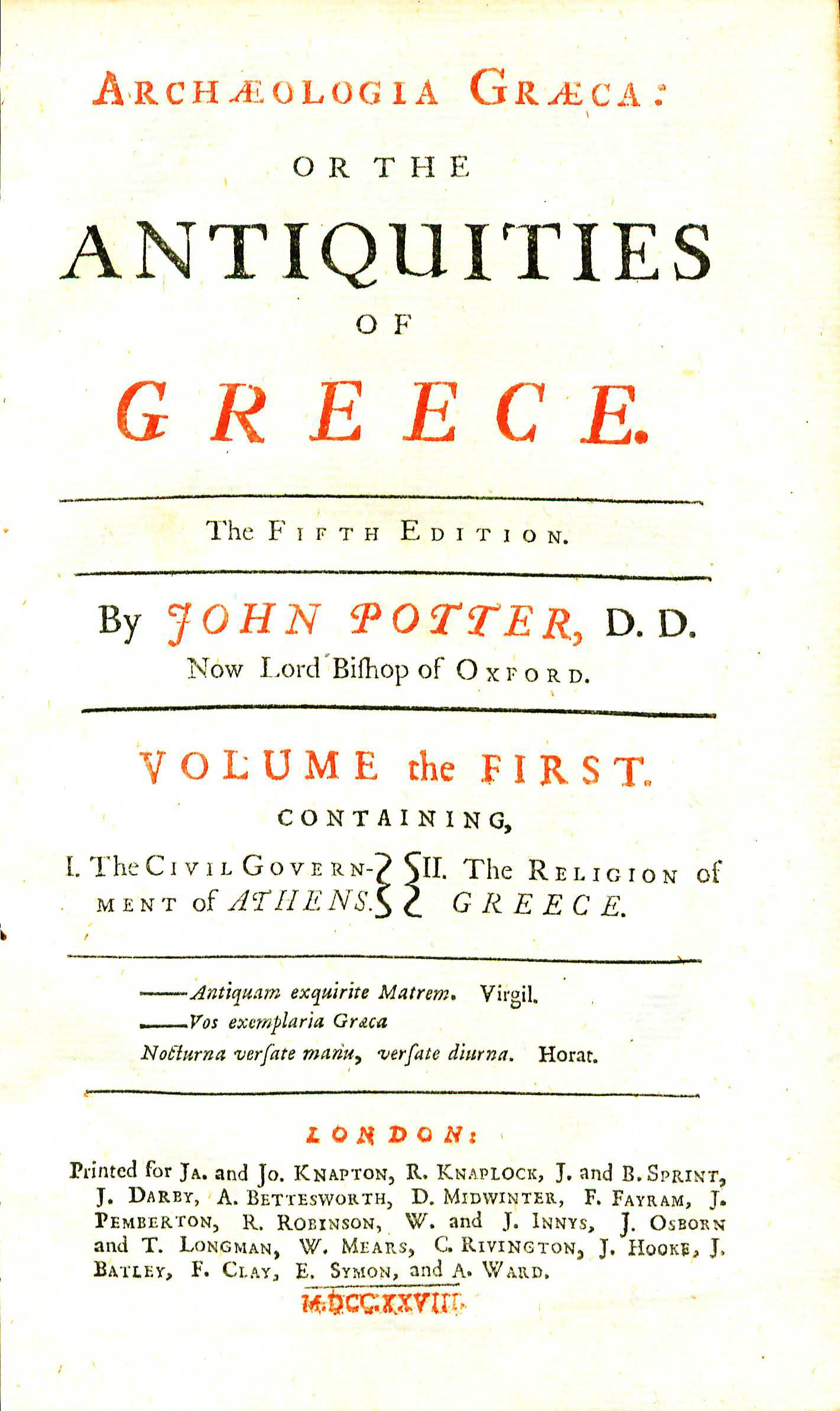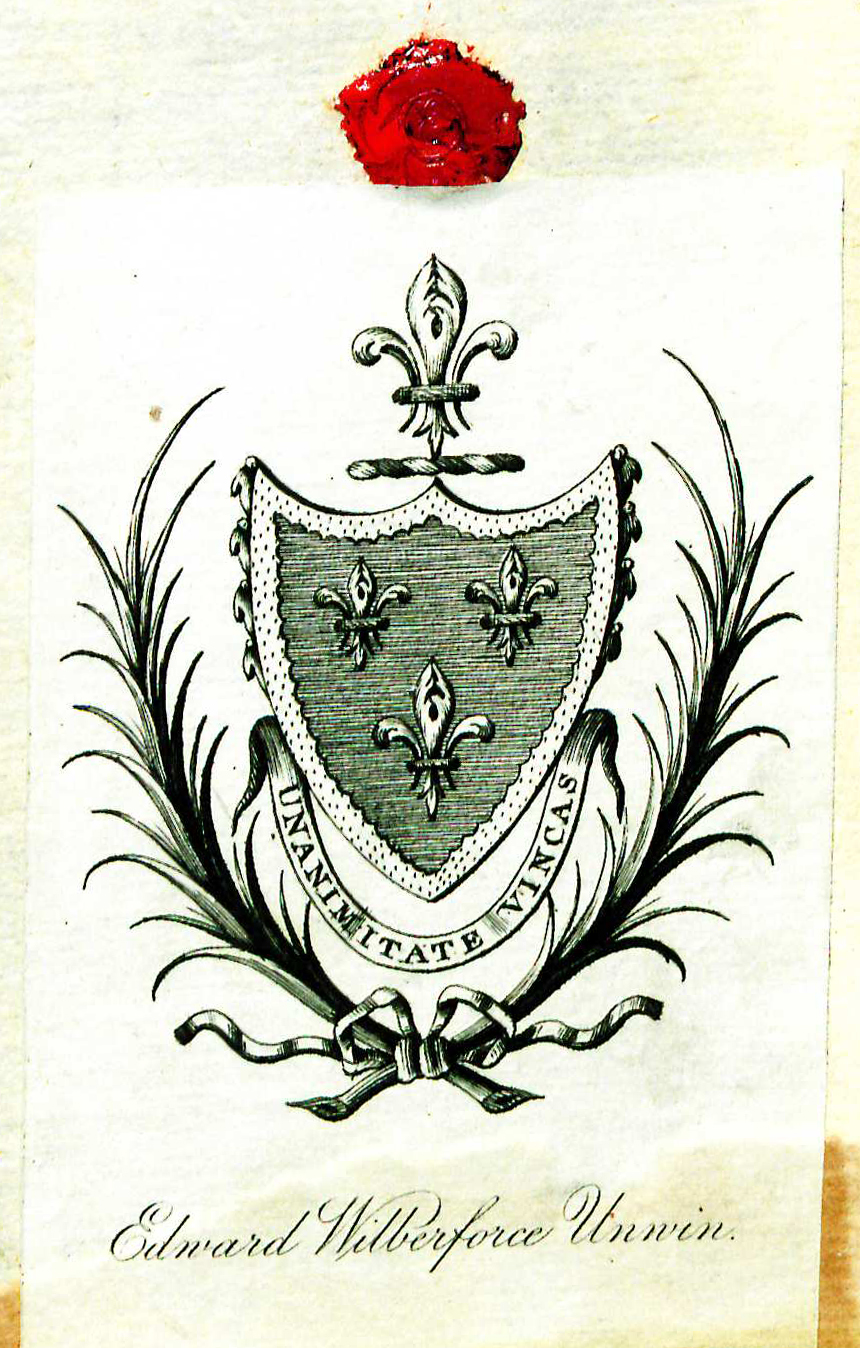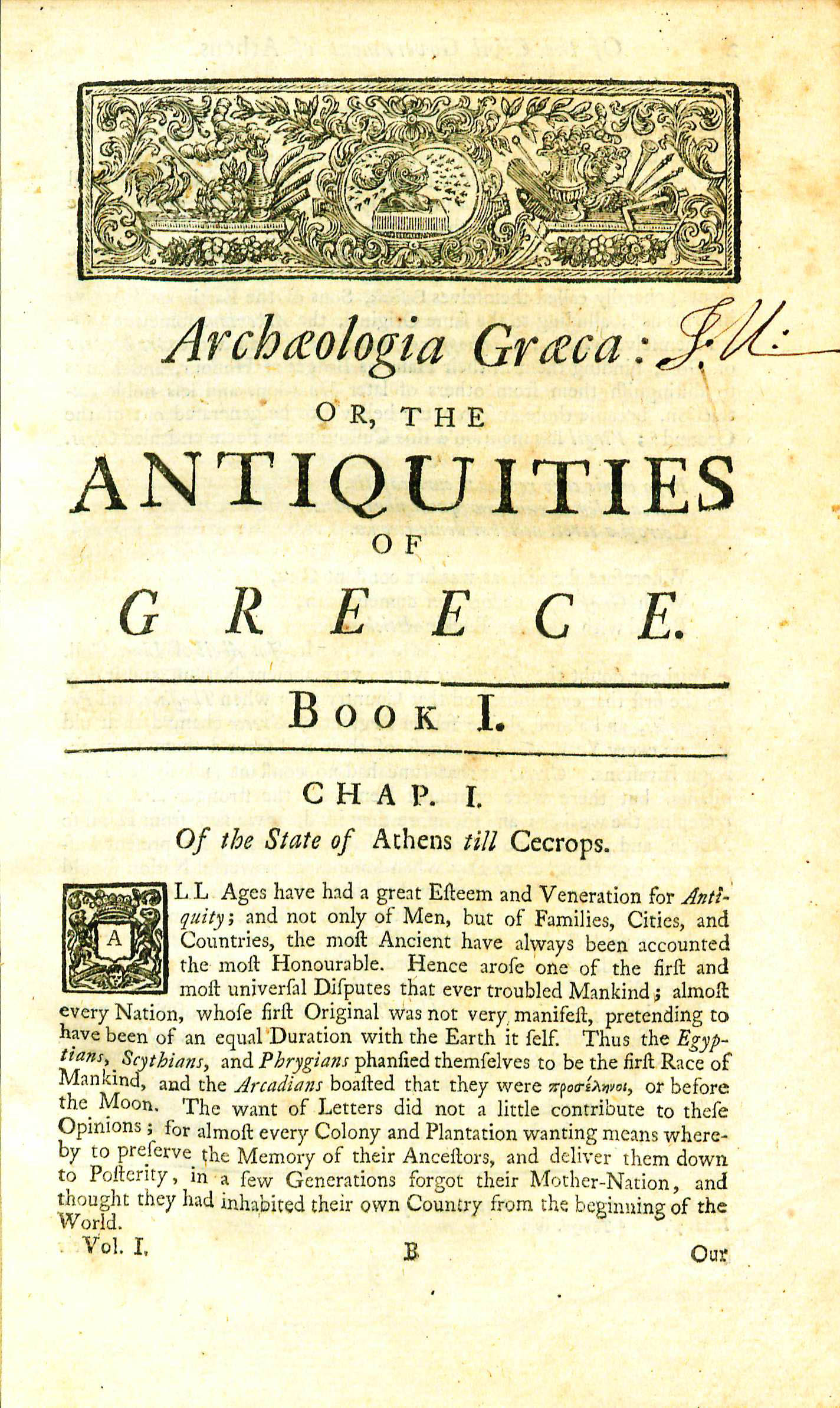Difference between revisions of "Archaeologia Graeca"
m |
m |
||
| Line 13: | Line 13: | ||
|set=2 | |set=2 | ||
|desc=[[:Category:Octavos|8vo (21 cm.)]] | |desc=[[:Category:Octavos|8vo (21 cm.)]] | ||
| − | |shelf= | + | |shelf=C-1 |
}}{{BookPageBookplate | }}{{BookPageBookplate | ||
|imagename=PotterArchaeologiaGraeca1728v2Bookplate.jpg | |imagename=PotterArchaeologiaGraeca1728v2Bookplate.jpg | ||
Latest revision as of 09:42, 23 May 2024
by John Potter
| Archæologia Græca | |
|
Title page from Archæologia Græca, volume one, George Wythe Collection, Wolf Law Library, College of William & Mary. | |
| Author | John Potter |
| Published | London: Printed for J. Knapton, R. Knaplock, J. and B. Sprint, D. Midwinter, A. Bettesworth, R. Robinson, W. and J. Innys, J. Osborne, T. Longman, W. Mears, and A. Ward |
| Date | 1728 |
| Edition | Fifth |
| Volumes | 2 volume set |
| Desc. | 8vo (21 cm.) |
| Location | Shelf C-1 |
John Potter (1673/4 – 1747), born in Yorkshire, England, was educated at Queen Elizabeth Grammar School and University College at Oxford. His years in Oxford led him to join the Church of England and abandon the Presbyterian faith of his father, which caused a complete breach with his family. 1694 saw Potter's election as Yorkshire fellow of [[wikipedia:Lincoln College, Oxford|Lincoln College]; he remained in that position until 1706.[1] During his time at Lincoln College, around the age of twenty-four, Potter became a rector. Further clerical positions followed: deacon, ordained priest, chaplain to the archbishop of Canterbury, and bishop of Oxford. In 1737, he was appointed archbishop of Canterbury, a position he held until his death ten years later.[2]
Potter published several works on the rights of the church in which he opposed contemporary efforts at reform. In addition to these, Potter, skilled in Greek and very interested in classical history, enjoyed a noted reputation for his historical works on ancient Greece such as Archæologia Græca. Originally published in 1697 and 1698, Archæologia Græca has been praised thus, "The warm eulogies of Gronovius attest the merit of this celebrated work. Potter ... had of course availed himself of the writings of Meursius, but he has also contributed to supersede them."[3]
Evidence for Inclusion in Wythe's Library
Listed in the Jefferson Inventory of Wythe's Library as Potter’s antiquities. 2.v. 8vo. and given by Thomas Jefferson to his grandson Thomas Jefferson Randolph. The Brown Bibliography[4] lists the seventh edition published in London in 1751 based on the copy Jefferson sold to the Library of Congress.[5] George Wythe's Library[6] on LibraryThing indicates "Precise edition unknown. Numerous two-volume editions in octavo were published, the first in 1706." Because we do not know the actual edition owned by Wythe, the Wolf Law Library purchased an available copy of the fifth London edition (1728).
Description of the Wolf Law Library's copy
Bound in contemporary tooled, paneled calf with red calf spine labels. Contains a dollop of impressed red sealing wax with the letter "E" on each front pastedown. Volume two includes the armorial bookplate of Edward Wilberforce Unwin on the front pastedown below the wax. Volume one initialled "J. U." on the first page of text. Purchased from Kenneth Karmiole, Bookseller, Inc.
Images of the library's copy of this book are available on Flickr. View the record for this book in William & Mary's online catalog.


